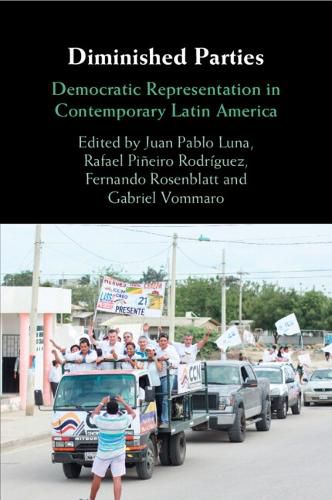Readings Newsletter
Become a Readings Member to make your shopping experience even easier.
Sign in or sign up for free!
You’re not far away from qualifying for FREE standard shipping within Australia
You’ve qualified for FREE standard shipping within Australia
The cart is loading…






Many contemporary party organizations are failing to fulfill their representational role in contemporary democracies. While political scientists tend to rely on a minimalist definition of political parties (groups of candidates that compete in elections), this volume argues that this misses how parties can differ not only in degree but also in kind. With a new typology of political parties, the authors provide a new analytical tool to address the role of political parties in democratic functioning and political representation. The empirical chapters apply the conceptual framework to analyze seventeen parties across Latin America. The authors are established scholars expert in comparative politics and in the cases included in the volume. The book sets an agenda for future research on parties and representation, and it will appeal to those concerned with the challenges of consolidating stable and programmatic party systems in developing democracies.
$9.00 standard shipping within Australia
FREE standard shipping within Australia for orders over $100.00
Express & International shipping calculated at checkout
Many contemporary party organizations are failing to fulfill their representational role in contemporary democracies. While political scientists tend to rely on a minimalist definition of political parties (groups of candidates that compete in elections), this volume argues that this misses how parties can differ not only in degree but also in kind. With a new typology of political parties, the authors provide a new analytical tool to address the role of political parties in democratic functioning and political representation. The empirical chapters apply the conceptual framework to analyze seventeen parties across Latin America. The authors are established scholars expert in comparative politics and in the cases included in the volume. The book sets an agenda for future research on parties and representation, and it will appeal to those concerned with the challenges of consolidating stable and programmatic party systems in developing democracies.